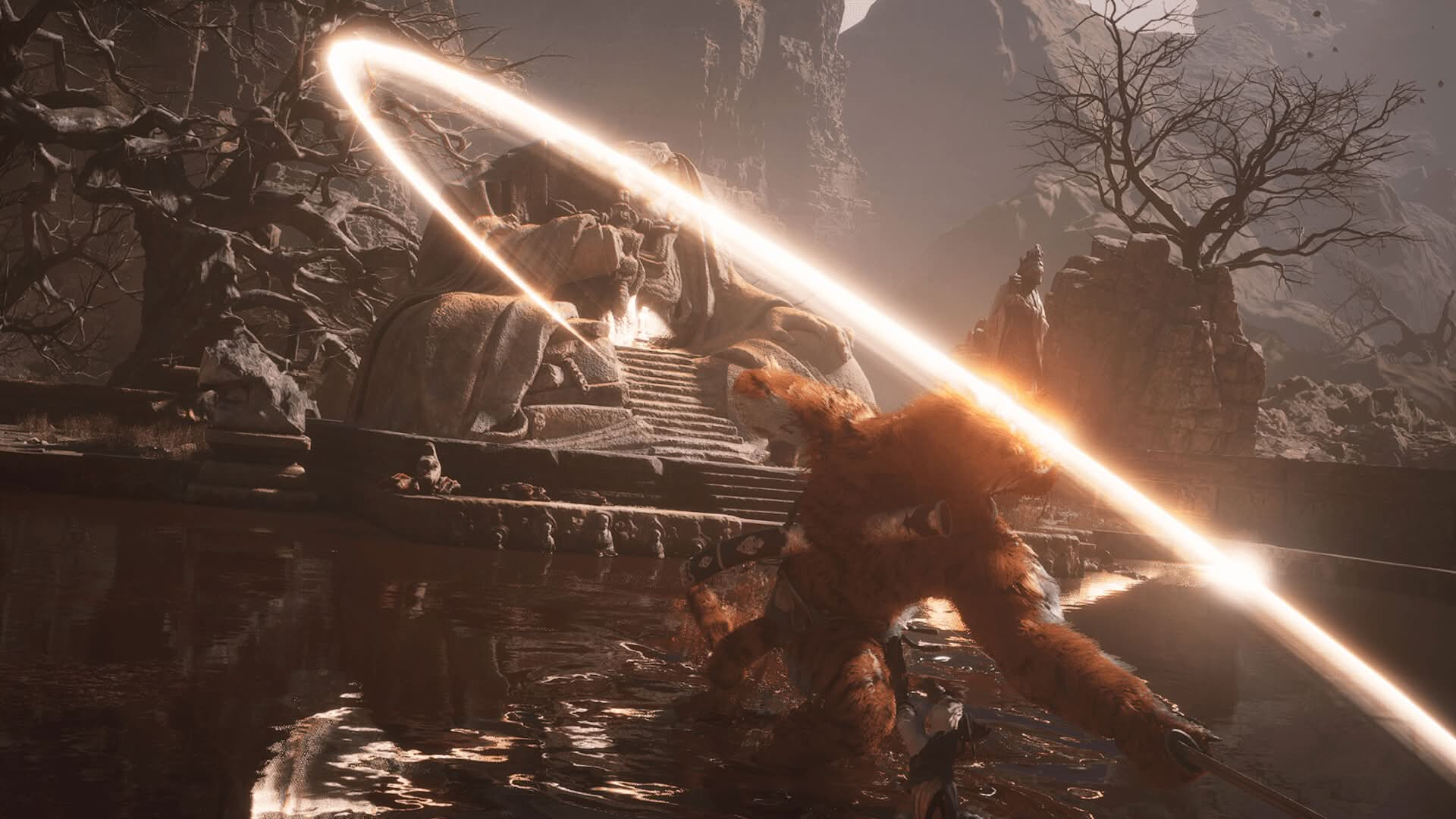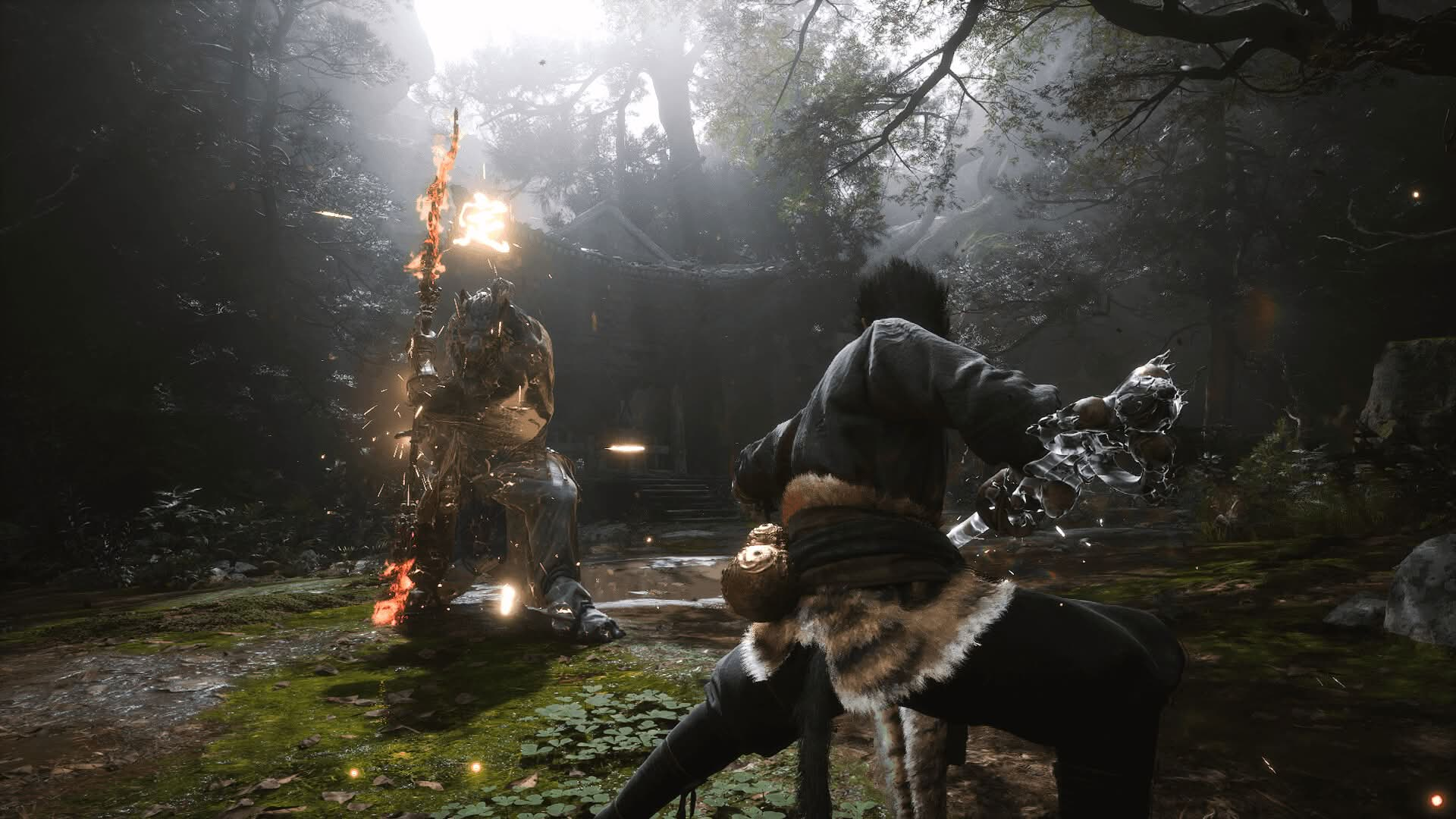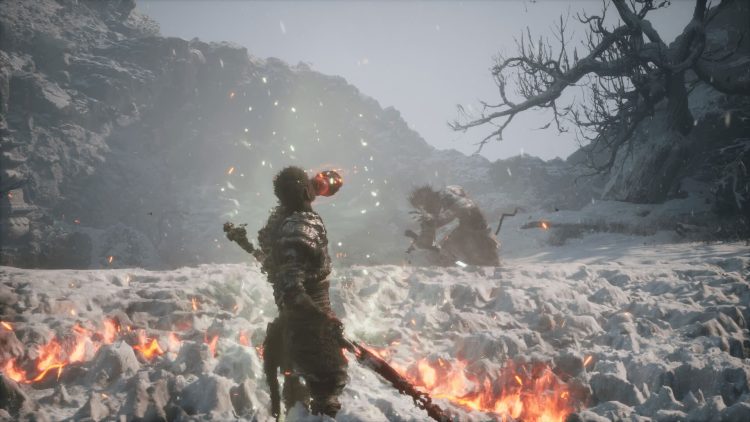So you too are confused by the Black Myth Wukong ending…
Black Myth: Wukong, the highly anticipated action RPG inspired by the classic Chinese novel Journey to the West, offers players a captivating and challenging experience. As they guide the legendary Monkey King, Sun Wukong, through a world filled with mythical creatures and epic battles, players inevitably arrive at the game’s mysterious and complex ending.
Let’s break down what happens in the final Black Myth Wukong ending and explore its deeper meanings.
What was in Black Myth Wukong ending?
The Black Myth Wukong ending centers around a climactic battle between Sun Wukong and a formidable final boss, who represents the ultimate challenge of his journey. This battle is not just a test of the player’s skill but also a narrative culmination of Wukong’s evolution from a rebellious trickster to a powerful hero. The boss embodies the themes of the story, such as the struggle between chaos and order, and the balance of power and humility.
After the final battle, we witness a significant transformation in Sun Wukong. The game visually and narratively depicts Wukong shedding his old, impulsive self, embracing a more enlightened and restrained nature. This transformation reflects his journey towards understanding his true purpose and the responsibilities that come with his immense power.

The Black Myth Wukong ending also features a mystical revelation, where Wukong encounters a celestial being or an ancient spirit. This entity reveals the true nature of the world and Wukong’s role within it. Players learn that Wukong’s journey was not just about gaining power but about understanding the cosmic balance and his place in the grand scheme of things.
An open-ended conclusion
Black Myth: Wukong concludes on an open-ended note, leaving players with more questions than answers. The final scene hints at a larger conflict brewing in the background, possibly setting the stage for a sequel. Wukong’s journey may be far from over, as the game suggests that his true mission has only just begun.
The Black Myth Wukong ending can be interpreted as a commentary on the themes of self-discovery, the burden of power, and the eternal struggle between light and darkness. Wukong’s transformation signifies that true strength lies not in raw power but in wisdom and restraint. The open-ended nature of the conclusion invites players to ponder the next steps in Wukong’s journey, both in terms of the narrative and the possible continuation of the game series.

Was Wukong like Dark Souls?
Yes, Black Myth: Wukong has been frequently compared to the Dark Souls series due to its challenging gameplay, intricate combat mechanics, and dark, atmospheric world. Here are some similarities:
- Challenging combat: Like Dark Souls, Black Myth: Wukong features difficult, skill-based combat where timing, strategy, and learning enemy patterns are crucial to success.
- Mythical and dark atmosphere: Both games share a dark, mythical atmosphere filled with mysterious lore, where the environment and storytelling are rich with symbolism and depth.
- Boss fights: The game includes intense boss battles that require players to master their skills, similar to the grueling encounters in Dark Souls.
- Exploration and level design: Black Myth: Wukong has a world design that encourages exploration, with hidden paths, secrets, and interconnected areas, much like the level design in Dark Souls.
However, Black Myth: Wukong also distinguishes itself with its unique setting based on Chinese mythology and its focus on the legendary figure of Sun Wukong, offering a different narrative experience.
Featured image credit: Black Myth: Wukong/Steam





